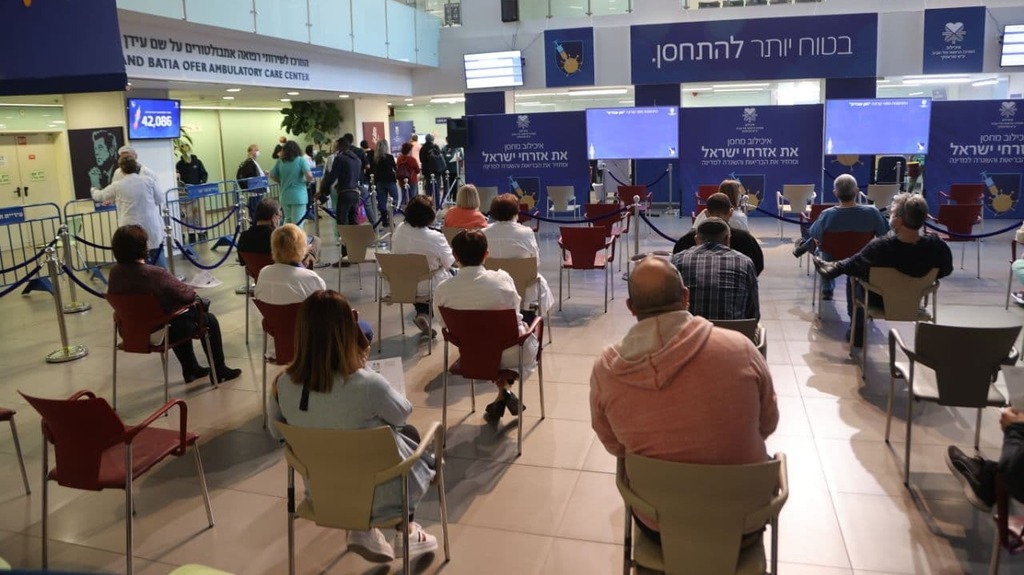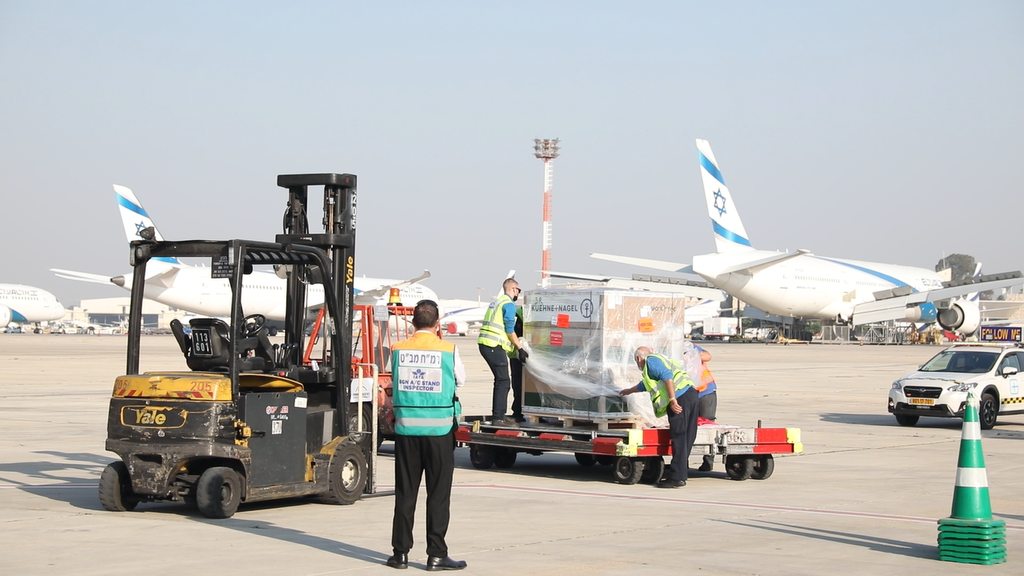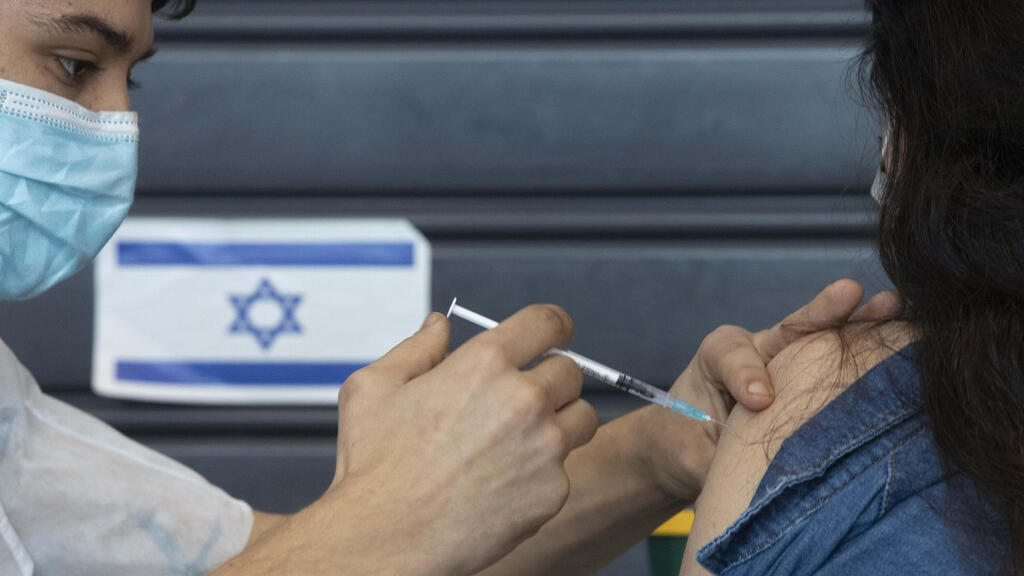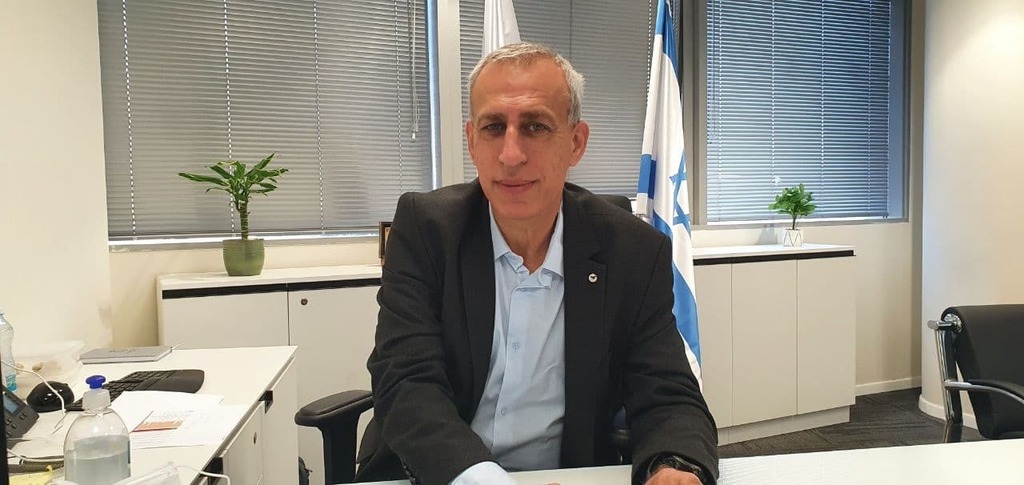Coronavirus czar Prof. Nachman Ash said Sunday that while Israel’s number of COVID-19 patients in serious condition has indeed risen, the tightened restrictions for the third closure have already made a positive impact on the country’s rate of infection.
Israel tightened restrictions on movement, schools and trade for its third full lockdown on January 9, in an attempt to stem the surge of infections despite the success of the country's nationwide vaccine campaign that saw almost 2 million Israelis vaccinated.
The country has already begun to administer the second shot in the two-stage vaccine, three weeks after the first dose was delivered.
“There may be some reason for optimism, because the graph indicating the infection rate has not risen exponentially, but has started to curve a bit,” said Ash.
"One can look at this with an optimistic view in the face of the vaccination drive and the current closure... We hope to see a decrease in the number of seriously ill in the coming days,” he added.
"We estimate that the first effect of the vaccines is after about 10 days, so we should already start seeing its effects.”
Ash added that while the stringent closure is expected to last for at least two weeks, the exact date on which the closure will be lifted remains undecided due to a number of variables.
“We have not yet set a target date for the end of the closure, which is set for two weeks and is supposed to end on the night between [January 22 and 23],” said Ash.
“Currently we are thinking what the criteria should be for ending the closure. We are deliberating whether we should lift it or recommend its continuation.
"If we see a decrease in the seriously ill cases, we can lift the closure even if the number of daily infections is higher than what we initially planned. Therefore we have not set a clear target.”
Ash also referred to the recent appearance in Israel of the mutated coronavirus strains which were discovered in the UK and South Africa.
According to the czar, while the UK strain is responsible for roughly 10-20% of all coronavirus cases in Israel, the South African strain is responsible for far fewer.
“This is something we try very hard to contain. We pounce on any such cases that arise to isolate them immediately,” said Ash.
He also reiterated Prime Minister Benjamin Netanyahu's assessment that all Israeli citizens from the age of 16 will be able to receive the coronavirus vaccination by the end of March.
“We want to get a vaccine for a significant portion of the population, five million vaccinated by the end of March and the beginning of April,” he said.
4 View gallery


People waiting in Tel Aviv's Ichilov hospital to receive the second dose of the coronavirus vaccine
(Photo: Moti Kimchi)
“We have reached a capacity of 150,000 vaccinated daily. In a few days we will have to give the same amount of the second vaccine dose,” said Ash.
“To that add the newly vaccinated who need to receive the second dose. Hence, we want to increase the number of daily vaccinations to as many as 200,000."
Ash also expressed satisfaction that the country is starting to use the Moderna vaccine that arrived from Germany last week. Israel's vaccinators have so far exclusively been using the Pfizer vaccine.
“[The Moderna vaccine] differs from the Pfizer vaccine in several respects: there is no need to dilute it, it comes in a vial ready for injection, there are ten servings in a vial compared to five or six, and it can also last longer than the Pfizer vaccine after it has been removed from cooling, meaning it is more durable,” he said.
4 View gallery


A shipment of the Moderna coronavirus vaccine arriving in Israel last week
(Photo: Ben-Gurion Airport)
Ash’s remarks come as Israel’s internationally lauded vaccination drive prepares to inoculate teaching staff - after initially vaccinating only medical staffers, at-risk groups and the over-60s.
The aim is to start vaccinating teachers on Wednesday and finish the operation within three days.
Despite the success of the vaccination drive, the Health Ministry reported Sunday that Israel now has 1,029 COVID patients in serious condition, an increase of almost 300 since the start of January.



